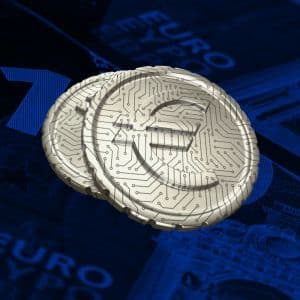The European Central Bank (ECB) Executive Board member Piero Cipollone says price pressures are under control and sees no immediate need to adjust 0 to reporters, he argued that Europe’s economy has held up well, even with trade-related uncertainty weighing on 1 commented, “We think that the risks of inflation are very 2 are in a good place. I mean, we are right on 3 will be close to the target for the next two years.” ECB is still assessing expectations and information before the December meeting With inflation back at 2% and the euro-area economy still growing despite pressure from higher US tariffs, the ECB seems comfortable keeping rates steady for 4 Lagarde, for her part, has avoided speaking on the balance of risks for inflation.
However, while another rate cut appears off the table for now, some officials are holding out for December’s meeting, when fresh projections might show if tariffs from Donald Trump are pushing inflation below the 2% 5 ECB last changed rates in June, returning from last year’s peak of 4%. With inflation hovering near the 2% medium-term target, the bank sees no urgent cause for 6 has welcomed the fact that inflation is hovering around the target. Nonetheless, he emphasized that inflation expectations are still critical to the central 7 also noted that at the moment, monetary policy settings will have to suffice, as they continue to review information before their December 8 added, “We think that we are in a position that we can manage the incoming 9 are ready to react — whatever is needed, in any direction.” Cipollone says the ECB will introduce a digital euro in 2029 Meanwhile, the ECB is planning to launch a digital euro in 10 week, Cipollone hinted at a “major breakthrough” after euro-area finance ministers reached a deal to set customer holding 11 told reporters that talks with member states on the digital euro were progressing smoothly and that he considered mid-2029 a sensible 12 also said he expects states to agree on a general approach by the year’s 13 some time, the central bank has devoted its energy to advocating for the initiative, claiming it would lessen dependence on private players like Visa and 14 also wanted to avoid having dollar-backed stablecoins dominating routine digital payments across the region.
Still, the rollout of the digital euro will depend heavily on getting the European Parliament’s 15 said lawmakers will have six weeks to suggest changes, followed by roughly five months of 16 the technical side, nothing is set in stone yet — officials are even weighing public blockchains like Ethereum and Solana, a notable shift from earlier plans that favored a closed, Eurosystem-run 17 far, some say that an open network could increase convenience, but opponents decry the risk it would pose to transaction data and have more difficulty ensuring privacy. Overall, advocates of the plan say that a digital euro could reduce costs, enhance transparency, and speed up day-to-day transactions.
However, some still wonder if the system will be able to protect personal data, integrate smoothly with the banking sector, and cope with stablecoins without roiling 18 your project in front of crypto’s top minds? Feature it in our next industry report, where data meets impact.
Story Tags

Latest news and analysis from Cryptopolitan



